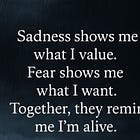Why I Left Tesla for SpaceX
The Next Chapter I Couldn’t Ignore
In August, I made a difficult decision to leave Tesla.
For five years, Tesla was my world. It wasn’t just a job—it was an identity.
At Tesla, I touched projects that shape the future. I built friendships that became family. I pushed myself harder than I thought possible. Tesla gave me the chance to climb nearly every level of Maslow’s hierarchy. It gave me stability when I needed it most. It gave me lifelong friends who showed up for me through the hardest times. It gave me confidence in my own voice and even helped me actualize—mentoring interns, guiding teammates, learning how to lead.
That’s why walking away wasn’t easy. I was well-compensated. I was at the peak of my stock vesting. I had respect, stability, momentum, and comfort.
And yet, I knew it was time to close that chapter.
At the time, I didn’t even have an offer in hand. SpaceX was still in process, and I told myself it was okay if it didn’t work out. I was open to going back to school for psychology, taking a sabbatical, and spending more time with family. I was ready to walk away cold turkey.
But over the weeks, the SpaceX opportunity grew real. The interviews became an offer. The offer became a signed contract. And suddenly, I was searching for apartments in Los Angeles with a start date circled on the calendar.
The next chapter was arriving—and for the first time, I could see the sun setting in San Francisco and rising in LA.
Why I Left Tesla
People often say: “People don’t leave jobs—they leave managers.”
That wasn’t the only reason I left Tesla, but it was the spark. I wrote a more thorough reflection that you can read up on:
I had worked under leaders so good that even if the work was painful, I wanted to stay because they fostered growth and shone the light on their teams. My last manager wasn’t ready. Their emotional awareness, their way of expressing frustration, the way they empowered—or didn’t empower—their leadership eroded my trust and respect for them and the organization.
I don’t share this with resentment. I truly hope they all grow from losing me and that they learn to lead better for those who chose to stay. But it reminded me: a manager can make or break whether you stay, even if the work itself is meaningful.
That’s when I knew. It was time to leave.
Why SpaceX
SpaceX was the only company that could keep me in engineering.
If not for SpaceX, I likely would have left corporate and engineering altogether—to pursue psychology, mentorship, or writing full-time. But SpaceX lit a spark that no other company did.
Why? Because it wasn’t just a job. It fueled me to pursue my purpose. In fact, I’m not a rocket or aerospace junkie. It took me months to chart out how I want to create a more meaningful life for myself and how I show up for the world — to inspire and help people create meaning in their life.
As a kid, like many, I dreamed of becoming an astronaut. I never thought it could be real. But recently, something reignited. Reading The Elegant Universe by Brian Greene stirred my curiosity about the unknown—the questions physics still hasn’t answered about our universe.
On a recent trip to NYC, walking through St. Patrick’s Cathedral in New York reminded me how humans have always built upward, reaching for the divine. Touring the USS Intrepid and standing among massive aircraft carriers and fighter jets reminded me of the daring and precision that engineering demands.
And then I saw the children. Wide-eyed, asking questions, dreaming of flight. In their awe, I saw my own childhood wonder reflected back at me. Maybe I still won’t fulfill my dream to be an astronaut, but at least I can be a part of the history redefining it.
That’s when I knew: I wanted to be part of building the future that inspires the next generation. Not just as an observer, but as a builder.
The Fear Beneath the Excitement
But I’d be lying if I said I wasn’t scared — an emotion I’ve felt before:
There’s a little bit of imposter syndrome still. A part of me wonders: What if I fail at SpaceX? This is a fascinating feeling because I even wrote about my imposter syndrome fading a few months ago:
And yet—I also know this: if I try and give it my best, even if I fail, I’ll still grow. I’ll still have the chance to pivot, to pursue other paths, to keep moving forward.
So here I am, putting myself in a vulnerable position to try something new, to learn, and to grow.
And once that fear weakens, what remains is pure excitement. I can’t wait for my first day, to walk into the office and finally tell myself: I’ve made it.
It’s the same feeling I had when I first stepped onto UC Berkeley’s campus for grad school. A quiet moment where only I could feel the truth of it—not anyone else. The smell in the air, the weight in my body, the electricity of finally being there. That’s the feeling I look forward to experiencing again.
Facing the Hard Truth About SpaceX
I’m not naïve. SpaceX has a reputation for being even more demanding than Tesla. Long hours. Relentless pace. A culture of intensity.
And yet—when I interviewed, I didn’t feel weighed down. I felt lifted. It didn’t feel like a burden. It felt like a challenge.
Like standing on the edge of a deep pool. You don’t know exactly how to swim—but you trust that once you jump in, you’ll figure it out. You’ll swim faster, stronger, better.
Most people stay in their comfort zones. They do what they know. But growth rarely lives there.
A friend once told me:
“We rarely regret change, but we almost always regret inaction.”
If it turns out well, we celebrate the decision. If it turns out poorly, we still value the lesson. Either way, we grow. I knew if I didn’t do this now, I’d regret not trying.
That’s what SpaceX felt like to me: an opportunity for growth.
Weighing Maslow’s Hierarchy
I thought carefully about what I was gaining and losing.
At Tesla, my physiological, safety, belonging, and esteem needs were all met. At SpaceX, I knew I’d take hits on every level—less pay, less comfort, leaving behind friends and the confidence I’d built in San Francisco.
But I also knew what I’d gain: actualization. Meaning. Purpose.
SpaceX empowers you differently. At Tesla, when I pitched a vision, I was told to stay put and not do more. At SpaceX, I was told: “Here’s the hammer. Go hit the nail. If you don’t know how, we’ll teach you.”
That trust in my potential—that belief in me—was the difference.
The Next Chapter
So here I am, preparing to move to Los Angeles. Searching for an apartment. Saying goodbyes in San Francisco. Carrying friendships I know will last across distance.
It’s bittersweet. I’m leaving behind comfort, familiarity, and community. But I’m gaining something greater: the chance to be part of a mission bigger than all of us.
To me, SpaceX isn’t just another job. It’s a leap into the unknown. A chance to help humanity reach upward, to inspire the next generation, to contribute to the kind of history I once only dreamed of as a kid.
This decision isn’t just about me.
I tell people all the time: the meaning of my life is to help others find the meaning of theirs. I push my friends, my mentees, my circle, to actualize and transcend. To follow their dreams. To do what’s hard.
But if I don’t embody that myself—if I don’t run toward my own fear, if I don’t lean into imposter syndrome, if I don’t take the leap into what feels daunting—then I’m not living what I teach.
So here I am, doing exactly that. Running toward the challenge. Choosing change over comfort. Choosing growth over safety.
I hope my journey inspires others to do the same. Whatever field you’re in, whatever meaning you want to create—run toward it. Run toward the thing that scares you most. Because that’s where life expands.
And so, this is my next chapter. The chapter I couldn’t ignore.
“Tesla gave me the foundation. SpaceX gives me the future.”



